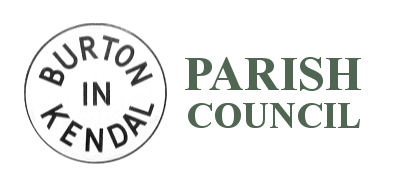Before, During and After...
Before a flood
• Prepare a flood kit, including a bag of warm clothes for you and your family (sufficient for a number of days should you not be able to return home). In the bag you should also have a torch, spare batteries, toys for any children and pets, wellingtons, hand sanitiser and rubber gloves.
• Prepare and keep to hand in a water proof bag; any medication you or your family may be taking, home insurance policy details, personal ID (such as passport or driving licence) for you and your family, debit/credit card, phone charger etc. This could be kept in your flood kit.
• Complete a personal flood plan, See Below, complete and print off, keep it in a safe place and let others know where it is.
• Contact the local flood forum co-ordinator for available assistance, Chris Nolan, 07930803060, including sand bags and signs etc
• Register with local flood line 0345807060, www.environment-agency.gov.uk
• Ensure your insurance policy is up to date and gives sufficient cover for both buildings and contents. Also consider kennels for pets.
• Put into position any flood defences you may have.
• Move all sentimental items to a position of safety, above the expected level of flood waters.
• Move to higher ground any furniture, electrical goods etc you can safely carry, wrap curtains around curtain poles if you don’t have time to remove them.
• Locate your gas, water, and electric mains isolation stop taps and switches, be prepared to switch them off should the risk become severe.
• If you need to leave your home before or during a flood you MUST inform friends and family AND the local flood forum so to avoid concern of missing people.
• Check in with vulnerable neighbours. Make sure they are prepared.
During a flood
• Do not try to drive through flood waters.
• Flood water is always contaminated and never clean. Keep yourself, family and pets out of the flood water.
• Any cuts or grazes obtained during flooding should be sanitised and treated as soon as possible.
• Flood waters can be deceptively very deep and fast flowing. Do not enter flood waters unless told to do so by emergency services or persons in authority.
• Do not let pets into flood waters.
• Listen to local radio for news and flood updates.
After a flood
• Do not re-enter your home until you are told it is safe to do so.
• Do not turn on your water, electric or gas supplies until you are told it is safe to do so. A certificate must be issued by a competent gas fitter or electrician, BEFORE you turn on services.
• Notify your insurance company of the flood and extent of the damage.
• Take photos of every affected room and all affected contents BEFORE you move them or throw them out.
• DO NOT remove any carpets or flood damaged goods until told to do so by your insurance company.
• Only when instructed to do so, remove contents. Save samples of carpets, underlay and other floor coverings. These will be needed later.
• The clear up can begin once flood water has subsided. BUT remember flood water is always contaminated. Ensure gloves are worn at all times and that all exposed skin is sanitised before eating, drinking or smoking.
• In most situations your insurance company will assign a contractor to clean, sanitise and dry your home. At times of flooding this could take time due to access and the number of flood cases in the affected area.
• If you are insured, your insurance company will appoint a surveyor to attend, provide costs, and to arrange reconstruction of your home.
• You do have the right to opt for a cash settlement if you wish. But, the surveyor will still need to attend to enable a cash settlement figure to be calculated.
• If you are unable to return to your home, alternative accommodation can be arranged, and paid for, by your insurance company. This also applies to your pets.
• Until all flood water has receded it will still be dangerous. Manhole covers and gully tops may have been dislodged leaving unseen dangers. Use sticks as a guide until all surfaces can be seen.
• Ensure needy and vulnerable neighbours are ok, do they need help?
